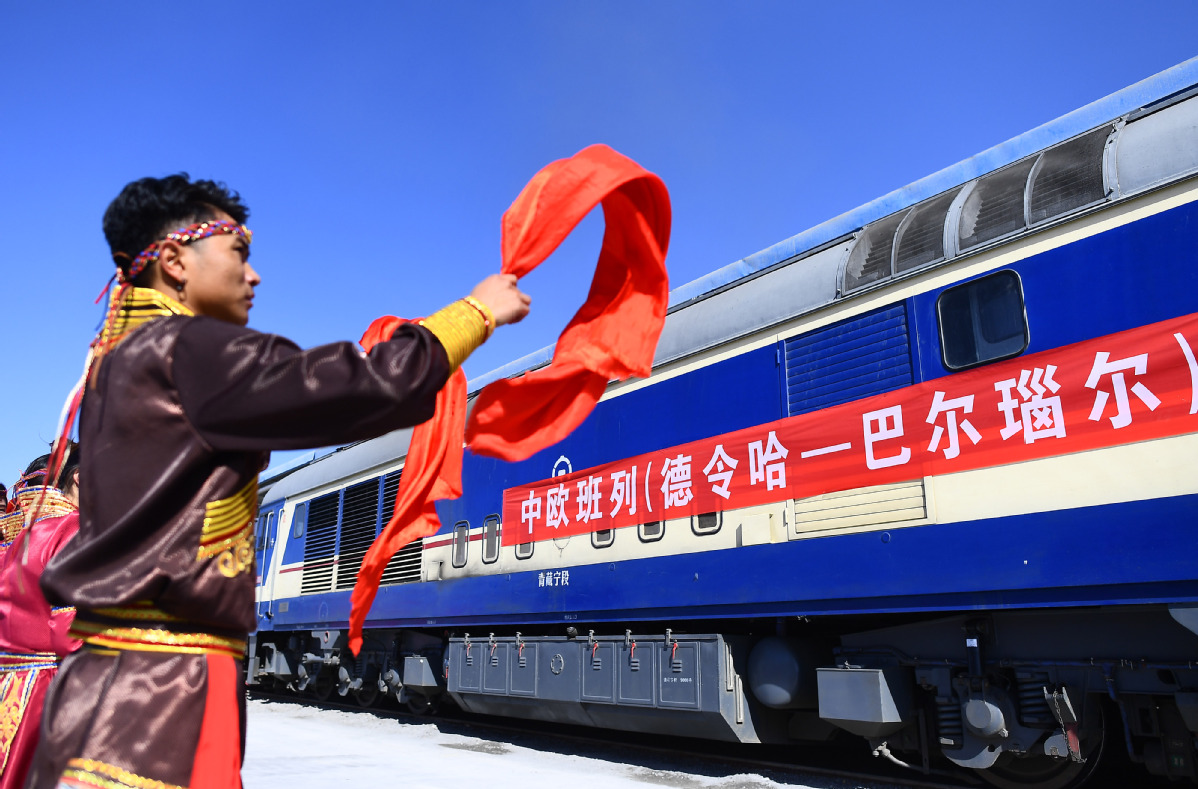
A China-Europe freight train leaves Delingha, Qinghai province, for its maiden journey to Russia, earlier this month. (Photo/Xinhua)
The government is building a system to evaluate China-Europe freight train routes, in order to fend off risks from price competition and local government subsidy, which is expected to be reduced by 10 percent a year starting from 2018, according to the nation's top financial regulators.
Government subsidies for the China-Europe freight trains should be capped at 50 percent compared to the costs of domestic railway costs, and subsidies are expected to be reduced by 10 percent a year compared to the 50 percent level in 2018, according to requirements by the Ministry of Finance.
"While fruitful results have been achieved with much policy support from the Belt and Road Initiative, more efforts are needed to improve the efficiency of operation, prevent the blind expansion of railway routes and lower operating costs," said Ning Jizhe, deputy head of the National Development and Reform Commission.
A number of indexes measuring customs clearance are expected to be included in the system, according to the commission.
Launched in 2011, the China-Europe freight train service has witnessed rapid expansion in recent years backed by strong policy support, as many destinations have been involved in the Belt and Road Initiative.
A number of cities in southern and central China have been connected to 34 European cities, from Chongqing to Duisburg in Germany and Xiamen to Budapest in Hungary. These routes did not exist a decade ago.
More routes are expected to be opened in the next three to five years, such as trains to Turkey, Vietnam and Cambodia.
The trains connecting continents have helped enterprises to export goods through more efficient railway routes to get to Europe, which only take around 15 to 18 days, helping exporters save time compared to sea voyages that often take twice as long.
To promote the railway projects, the government has provided subsidies to help railway operators to cover costs.
"It is a good idea to provide subsidies during the early stage of development, but in the end these projects should be operated on market-based principles," said Xiao Zhiqiang, chief engineer of Shanxi Energy and Traffic Investment Co. "More careful plans to improve the subsidy scheme are needed."
Since 2011, more than 11,000 train trips carrying 920,000 metric tons of goods connecting China and 15 European countries have been made, according to the National Development and Reform Commission.

